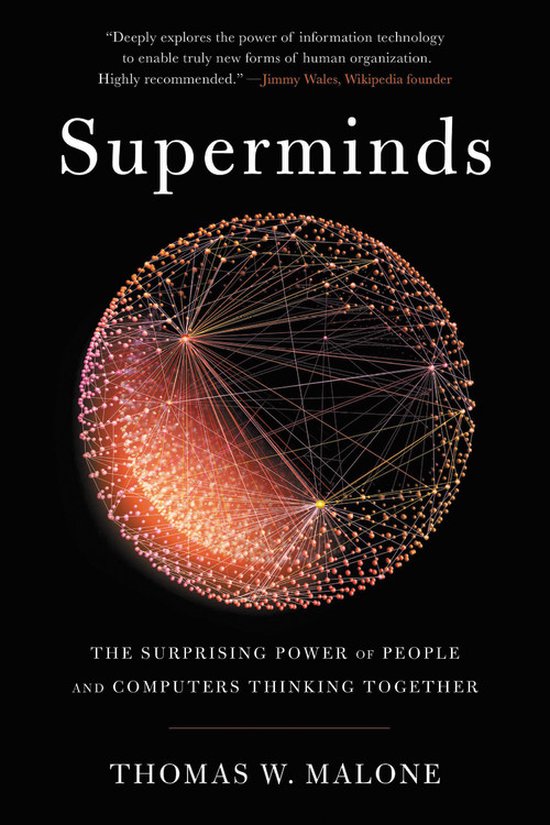
The Future of Work
Provides a workable model for creating and managing within the organization of the future. This book shows us that our notions about decentralization and empowerment merely scratch the surface of what will be possible as technological and economic forces render "command and control" management obsolete.
For more than a decade, business thinkers have theorized about how technology will change the shape of organizations. In this landmark book, renowned organizational theorist Thomas Malone, codirector of MIT's "Inventing the Organizations of the 21st Century" initiative, provides the first credible model for actually designing the company of the future. Based on 20 years of groundbreaking research, The Future of Work foresees a workplace revolution that will dramatically change organizational structures and the roles employees play in them. Technological and economic forces make "command and control" management increasingly less useful. In its place will be a more flexible "coordinate and cultivate" approach that will spawn new types of decentralized organizations--from internal markets to democracies to loose hierarchies. These future structures will reap the scale and knowledge efficiencies of large organizations while enabling the freedom, flexibility, and human values that drive smaller firms. This book explores the skills managers will need in a workplace in which the power to decide belongs to everyone.
For more than a decade, business thinkers have theorized about how technology will change the shape of organizations. In this landmark book, renowned organizational theorist Thomas Malone, codirector of MIT's "Inventing the Organizations of the 21st Century" initiative, provides the first credible model for actually designing the company of the future. Based on 20 years of groundbreaking research, The Future of Work foresees a workplace revolution that will dramatically change organizational structures and the roles employees play in them. Technological and economic forces make "command and control" management increasingly less useful. In its place will be a more flexible "coordinate and cultivate" approach that will spawn new types of decentralized organizations--from internal markets to democracies to loose hierarchies. These future structures will reap the scale and knowledge efficiencies of large organizations while enabling the freedom, flexibility, and human values that drive smaller firms. This book explores the skills managers will need in a workplace in which the power to decide belongs to everyone.
| Auteur | | Thomas W. Malone |
| Taal | | Engels |
| Type | | Hardcover |
| Categorie | | Economie & Financiën |





